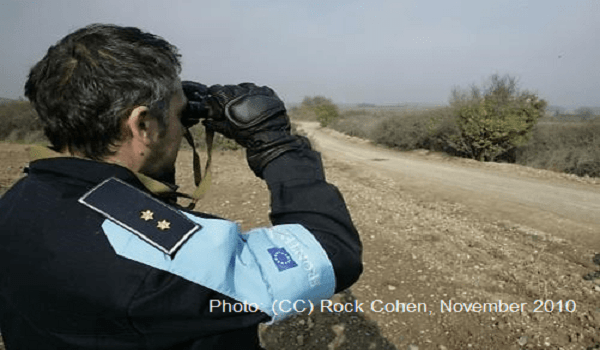European Parliament Scrutiny Working Group on Frontex starts work in the same week as the internal investigation of the Management Board delivers its report. Information of attempts to circumvent legal problems related to the purchase of firearms by relabelling them as technical equipment has been revealed. Member States want Frontex to play a stronger role in supporting returns.
The European Parliament Scrutiny Working Group formally began its work on 23 February and appointed Roberta Metsola, MEP EPP as a chair. The mandate of the Working Group is to monitor all aspects of the functioning of Frontex in particular compliance with fundamental rights, reporting and complaints procedures and transparency and accountability of Frontex to the EP. A report on the findings including recommendations will be drafted by Tineke Strik, MEP, The Greens.
In its first hearing on 4 March, the Working Group questioned Commissioner Johansson and Frontex Executive Director Leggeri. The hearing focused on the implementation of the fundamental rights provisions of the last Frontex mandate review, the investigation related to the agency’s activities in the Aegean Sea, interpretation of applicable rules for the surveillance of the external sea borders and clarity of the political scrutiny role of the European Commission over the agency.
Ahead of the hearing, Commissioner Johansson has criticized the ‘reluctance of compliance’ with the new mandate from Leggeri. The Director himself welcomed the establishment of the working group and played down the investigation against Frontex launched by the EU’s European Anti-Fraud Office (OLAF). Commissioner Schinas said that management issues in Frontex need to be resolved but defended the agency overall.
The internal investigation of the Working Group on Fundamental Rights and Legal Operational Aspects of Operations set up by the Frontex Management Board is supposed to be delivered to the Management Board on 5 March. A preliminary version of the report was leaked earlier this week. The final version criticizes among other issues monitoring, recruitment and reporting procedures of the agency. Five push-back incidents have not been clarified due to unclear data provided by Frontex. The leaked correspondence between Executive Director Leggeri and the European Commission, Council, Parliament, Frontex Management Board and border authorities in Greece, Romania, Portugal and Sweden related to some of the incidents in the Aegean Sea reveals the paper trail since May 2020.
A collection of Member States responses to questions on the cooperation between Frontex and Member States on returns conducted during the German Presidency in 2020 finds that many Member States want Frontex to organise Joint Return Operations and are interested in assistance with the organisation of voluntary returns and refinancing of costs. In addition, the majority of Member States were interested in support in the different stages of the return process of unaccompanied children even though some of them noted that return of unaccompanied children is a rare theoretical case or is prevented by national law.
Frontex purchase of firearms has come under question. Director Leggeri has explained in a letter to the European Commission that he intends to circumvent possible legal challenges to the agency buying firearms by labelling them as technical equipment, which would be covered by the Frontex mandate.
For further information:
- ECRE, Frontex Faces Another Investigation by the European Ombudsman and Legal Action for Not Suspending Operations on the Aegean, February 2021
- ECRE, MEPs Vote for Respect for Human Rights at the EUs External Borders Amid Continued Revelations and Increased Scrutiny of Frontex, February 2021
Photo: (CC) Rock Cohen, November 2010
This article appeared in the ECRE Weekly Bulletin. You can subscribe to the Weekly Bulletin here.

